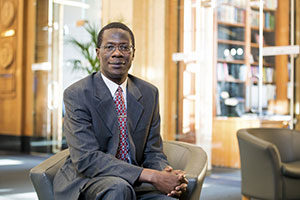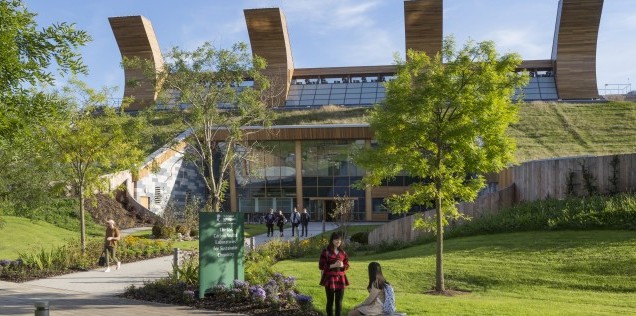A partnership between Nottingham’s two universities will host an East Midlands hub of a £2m national programme offering every school, college and university in England free access to expert support to become greener and more climate resilient.
As part of the Universities for Nottingham partnership, the Climate Action Planning Sector Engagement and Support Service hub will harness experts, organisations and businesses to help education settings in the East Midlands region to produce Climate Action plans that will boost climate education, promote green careers, reduce carbon emissions, increase biodiversity and allow them to become more resilient to climate extremes.
Funded by the Department for Education, the scheme is an expansion of the Climate Ambassadors programme, created by the University of Reading and STEM Learning, as one outcome of the National Climate Education Action Plan.
This is an exciting and crucial project for the education sector in the UK and one that we are very proud to be a key part of.
He added: “It is aligned to our pioneering Universities for Nottingham civic partnership and bringing together the skills, vision and networks of the partnership and the combined strength of Nottingham’s two world class universities will enable us to support and grow the Climate Ambassadors network across the East Midlands Region and deliver real change.”
Professor Robert Mokaya, Pro-Vice-Chancellor and Chair of the University of Nottingham’s Sustainability Committee added: “As a University we have a strong track record in delivering sustainability through our operational performance, teaching and research. The Sustainable Development Goals are embedded in all we do and we are delighted to use that expertise and experience to support the broader education sector.

Education is one of the most powerful mechanisms we have to tackle climate change and biodiversity loss, being able to develop and grow an ecosystem of Climate Ambassadors from all areas of society, including university students and academic expertise, to support all stages of education will be a key element of tackling climate change and delivering sustainable climate conscious behaviours
Laura Mayhew-Manchón, Head of Sustainability at Nottingham Trent University said: “Climate change remains a critical risk to life as we know it, with informed action required urgently across all levels of society. This Hub is therefore a hugely promising project for our region and one which we are honoured to be playing a key role in. Nottingham is home to two of the world’s most sustainable universities, not just in terms of how we manage our own institutional impacts, but also how we harness the collective skills and experience of our people and places to make a meaningful difference to the communities we are part of. Working closely together as the Universities for Nottingham, we will leverage our world-class expertise to strengthen the Climate Ambassador’s offering, empower those in education, and further effect long-lasting change for the East Midlands.”
The East Midlands is one of nine regional hubs across England being established by the Climate Action Planning SESS, hosted by 12 universities and organisations with expertise in sustainability. These hubs will recruit and support volunteers from industry and academia to work as Climate Ambassadors.
The ambassadors will provide advice and support to nurseries, schools, colleges and universities in developing Climate Action Plans across 4 key areas — sustainability leadership, climate science, environmental education, and communications and digital infrastructure.
Partner organisations will tailor their support to the needs of each school, college or university.
As well as providing resources and guidance on areas like energy use and enhancing biodiversity, experts will also help education settings to build resilience to extreme weather events. For example, schools vulnerable to flooding will get more help to prevent damage and cope with its impacts.
The expanded Climate Ambassadors scheme will launch in March 2024 and aims to rapidly scale up support for English schools, colleges and universities to support the DfE’s sustainability and climate change goals.
Since April 2022, the scheme has seen 236 Climate Ambassadors reach more than 80,000 learners and teachers in 534 schools, colleges and universities.
Climate change and the environment is a key strand of the Universities for Nottingham partnership, a pioneering collaboration that sees the city’s two world-class universities with local partners to improve levels of economic prosperity, educational opportunity, sustainability and the health and wellbeing of residents and the communities of Nottingham and Nottinghamshire.
A refreshed Civic Agreement, signed by both universities and eight local partners in March 2022, has resulted in several key achievements for Nottingham and Nottinghamshire, including incentivising more than half a million individuals to make positive sustainable choices, tracked using the Green Rewards App., This has already helped to avoid the emission of more than one million tonnes of CO2 from the universities and local councils













